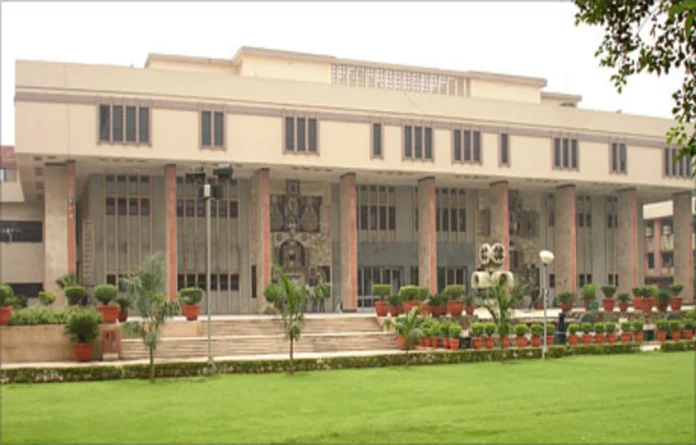The Delhi High Court has granted bail to Syed Ahmad Shakeel, elder son of Hizb-ul-Mujahideen chief and proscribed terrorist Syed Salahuddin, booked under the Unlawful Activities (Prevention) Act, in a terror funding case of 2011.
The Bench of Justice Navin Chawla and Justice Shalinder Kaur observed on Friday that Section 43D (5) of the UAPA did not take away the power of the Constitutional Courts to grant bail, especially when an accused had been in jail for a long period and there was no likelihood of the trial concluding soon. The right to life and personal liberty under Article 21 of the Constitution was of paramount importance. If this right was being violated, the Court could grant bail.
The Counsel appearing for NIA contended that Syed Ahmad Shakeel received funds amounting to Rs 2,74,744 on six different occasions from a proclaimed offender and co-accused, who sent the money through Western Union Money Transfer at the behest of his father. He further alleged that there were unaccounted cash deposits totalling Rs 4.15 lakh in Shakeel’s bank accounts.
He further submitted that the funds were received by Shakeel while acting as a member of the proscribed terrorist organisation Hizb-ul-Mujahideen, as part of a larger criminal conspiracy. The accused had been receiving phone calls from his father, a proclaimed terrorist, presently residing in Pakistan, and the leader of the said organisation.
The Bench noted that Shakeel had already spent nearly seven years in custody, with no clear certainty as to when the trial would conclude. It granted bail to Shakeel on a personal bond of Rs 1,00,000 with two sureties of the like amount.
The High Court, however, rejected the bail plea of Syed Salahuddin’s younger son, Shahid Yousuf, in the same case.
In its detailed 47-page verdict, the Bench observed that it could not ignore the larger conspiracy brought forth by the prosecution, which posed a threat to the unity, integrity, and security of the nation.
The Counsel representing NIA contended that appellant Shahid Yousuf had entered into a conspiracy to raise and collect funds from co-accused Aijaz Ahmad Bhat, a cadre of the proscribed terrorist organisation Hizb-ul-Mujahideen. He said corroborative material on record demonstrated that the appellant, while acting as a member of Hizb-ul-Mujahideen, was part of a larger conspiracy to raise funds with the intention of supporting the activities of the terror outfit.
Appearing for Shahid, Advocate Jawahar Raja pointes towards his prolonged incarceration, stating that he had been in custody for a period of seven years and four months.
Additional Solicitor General Vikramjeet Banerjee submitted that a perusal of the diaries recovered from Shahid revealed that he was sympathetic towards various terrorists killed in different operations.
Taking note of the submissions, the High Court observed that the appellant had used hawala channels to route terror funds into Jammu and Kashmir, and was allegedly part of this network.
It further took into consideration the fact that Shahid had direct contact with known members of the proscribed terrorist outfit.
The Bench observed that the nature of the allegations and the material placed on record prima facie established the appellant’s involvement in this conspiracy and his direct contact with known members of the proscribed terrorist outfit. He was alleged to have received money from co-accused A-6, knowing that the funds would be used to further terrorist activities.
The possibility of the appellant being a flight risk could not be ruled out, especially in light of the allegation that he had earlier travelled on a passport with a falsified parental identity and later destroyed the document. There was a real likelihood of his tampering with evidence and influencing witnesses, noted the Bench and denied bail to Shahid.


